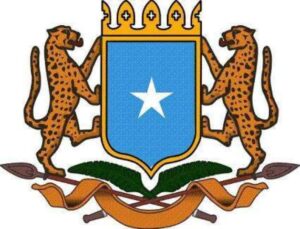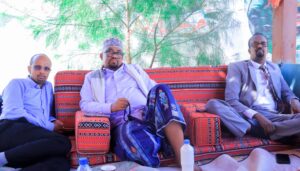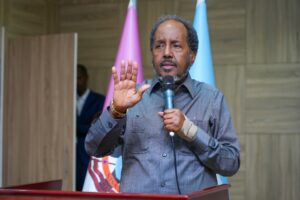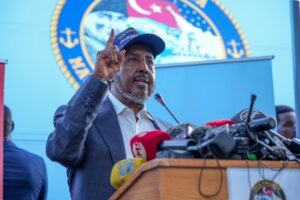Where the year 2017 will take Somalia?
Where the year 2017 will take Somalia?
Many factors will impact Somalia in 2017 and beyond. These factors, which can be separated into internal and external factors, may lead the horn of African nation into either more chaos or a gradual recovery from its current instability. Internally, the president, prime minister and legislators of both houses have to play their intended roles and aim for the betterment of Somalia’s condition. Externally, countries both in the region and afar because of Somalia’s geopolitical and geoeconomic importance are watching very carefully. Therefore, its survival will depend on how these two factors play out in 2017. How these factors are managed will depend on how Somalia’s key political drivers, the president, the prime minister and the legislators display the skills needed to swim these troubled waters.
Internal factors
In 2017 and beyond, the future President, his prime minister and legislators will either lead Somalia into more chaos or take the nation into success to become part of the international community as a relevant and responsible nation state.
The future president of Somalia shouldn’t be one who has only the ambition to rule but one who has the skills to work with his Prime Minister and the nation’s legislators to help Somali citizens regardless of their political views and their place of birth. Furthermore, any future president should delegate the day to day running of the country to the prime minister and his cabinet, but monitor, and advise when necessary. Similarly, he should travel throughout the country to bring on board all Somali citizens and listen to their concerns and subsequently explore therapeutic strategies. The future president should also act as the nation’s father and seek that fatherhood legitimately. The Central government has to accept the constitutional rights of the federal member States unconditionally to avoid any dispute and political tension between the Central Government and semi-autonomous States. In other words, the country’s constitution should remain the key point of reference after the holy-book. Moreover, any Somali future government has to explore means to talk to Al-Shabab (Somali radical group) and work out a peaceful means to end the overall hostility. Violence should not be seen as a means to resolve any disputes as it has been proven, in the last ten years, to not be in anyone’s interest.
The future Prime Minister should elect his cabinet according to their skills and qualifications not according to their clan affiliation. The Prime Minister should be a team leader and must consult with his president when necessary to ascertain that his policy and plans are known to the president so as to avoid any surprises and misinterpretations. The prime minister should somehow share his plan with the parliamentarians who should ultimately pass it on to their constituencies to seek their feedback. Evidently, among other matters, what had debilitated the former Somali governments is corruption – a high-level of corruption. Therefore, the future Prime Minister has to create a powerful Somali Anti-Corruption Commission (ACC) to fight against any level of corruption in the country. To ensure that Somalia wins against corruption, the government has to provide the new commission all the legal and physical tools that they need to carryout their duties successfully.
The legislators should understand their responsibility and the fact that they are representatives of their constituencies. They have to understand that their task is to uphold the constitution of the country and to make sure that the president and his prime minister abide by the law. Each Member of Parliament should have a staffed-office where his/her constituencies are residing geographically, and his staff should update him/her about the political, social and economic conditions of his/her constituencies. A few days ago, a member of parliament said, “he [a member of parliament] is elected for the national parliament and therefore he is not representing any particular region”. That understanding of the role and responsibilities of a member of parliament is wrong. A member of parliament is there to represent the interests of the State/region that dispatched him/her to Mogadishu. Yes, when it comes to the national issue he/she has to advocate for the wellbeing of the nation, but one has to differentiate between National and State/regional interests. Moreover, all members of parliament should go back to their constituencies when the parliamentarians are not sitting, and stay and live there to understand the overall condition of their constituencies. In short, they should not barricade themselves in Mogadishu hotels.
Unless the president, prime minister and legislators in Mogadishu start working together for the benefit of Somalia instead of squabbling amongst themselves, not only will precious time be wasted from the endeavor of repairing Somalia they will also run the risk of reverting the country into civil war.
External factors
Somali politics is closely monitored and followed by regional and distant countries including USA, UK, KSA (Kingdom of Saudi Arabia), UAE, Turkey, Qatar and Ethiopia. With the ongoing support from these nations, Somalia is capable of moving towards the right direction slowly but gradually. Unfortunately, all these countries are currently facing their own internal issues that could change their policy in regards to Somalia.
By January 20, 2017, USA will be led by Trump who has vowed to reduce America’s spending in third world countries such as Somalia. Similarly, his new cabinet may reconsider their policy on military spending which may impact America’s presence in the region.
Furthermore, Britain has been leading Europe’s role in Africa particularly Somalia and the success of their Brexit vote will have enormous consequences in the areas of humanitarian and developmental efforts in Somalia. Surely, many other Europeans are providing all kind of support to Somalia but the UK was the forerunner and prime mover, and Somalia will miss Britain’s role.
The Gulf States, particularly United Arab Emirates, Saudi Arabia, and Qatar are currently entangled in a costly war in Yemen to prevent what they see to be Iranian expansion in the region. This entanglement is happening at a time when the global oil price, the Gulf’s sole income generator, is spiralling downwardly with no one to push the break. Eventually, this could lead to the suspension or reduction of all Gulf States’ indirect and direct projects in Somalia.
The Turkish government, which has been supporting the Somali government and carrying out its own investment projects in the nation’s infrastructure from 2011 may not continue their efforts, as Turkey is currently facing political and security issues.
Finally, Ethiopia, which is the main contributor of foreign forces and the most influential country in all Somali territories, may not stay on course. Ethiopia is likely to have difficulties of their own because of changing foreign policy in America, Europe and the Gulf States as well as the uprising of some of its ethnic groups. This scenario could force the Ethiopian policy makers to focus on their survival, and that may negatively impact Somalia as Ethiopia may reduce their military and political involvement in 2017 and beyond.
If the incoming political drivers including the President, the Prime Minister and Legislators pursue an effective and united policy to overcome any challenges that might arise and seek to remediate Somalia’s current civil strife the slow but gradual recovery of the country can be sped up. However, this will depend on how the external factors that I explained above develop over the next few months. USA, UK, Turkey, the Gulf States and also Ethiopia to some extent, may in the next few months change their role in Somalia depending on how the politics of those states play out. If the external and internal factors fail to work for Somalia positively, the nation might not only become stagnant but also fall back into civil war.
Nevertheless, it will all depend on how the political drivers lead the nation in the coming years – “raq walba waa ku rageed” – all outcomes depends on the doer!!!
Omar M. Farah (Dhollawa)




